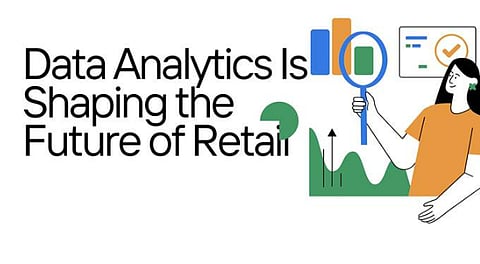

The retail industry is undergoing a quiet but powerful revolution, driven by data analytics. Today, businesses are no longer relying solely on intuition to make decisions; instead, they are leveraging vast datasets to gain precise insights into customer behavior, inventory management, and marketing performance. Advanced analytics has become an indispensable tool for retailers navigating an ever-changing marketplace, offering strategies that are as data-driven as they are customer-focused. With experts like Dheeraj Kumar Bansal leading the way as a Technical Expert, organizations are increasingly empowered to translate complex data into actionable strategies, enhancing operational efficiency and customer engagement. His expertise underscores the critical role of advanced analytics in shaping the future of retail.
At the heart of this transformation are four key types of retail analytics. Descriptive analytics lays the groundwork by interpreting historical data, providing a clear picture of sales trends and customer interactions. Moving deeper, diagnostic analytics uncovers the root causes behind those patterns, helping retailers understand why sales fluctuate or why customer engagement shifts.
Taking a forward-looking approach, predictive analytics employs historical data to forecast future demand, enabling businesses to prepare for market shifts well in advance. Finally, prescriptive analytics leverages artificial intelligence to suggest specific actions—be it in pricing, marketing, or inventory—that align precisely with business goals. Together, these tools form a robust framework that supports smarter, faster, and more accurate decision-making.
Personalized shopping experiences are no longer optional—they are essential. By harnessing data analytics, retailers can understand individual preferences and craft tailored experiences. Analytics enables personalized recommendations that increase customer satisfaction and loyalty. According to recent findings, advanced personalization can drive revenue increases of up to 15%, while also reducing customer acquisition costs.
Inventory optimization and supply chain management are some of the most profound impacts of data analytics. Retailers today can more accurately predict demands; thus reducing both excess inventory as well as stockouts. The analytic models avail businesses to align supply with customer demand precisely, thereby reducing inventory costs up to 30% and improving product availability. This precision is extended across the supply chain, where route and delivery optimization help reduce logistics costs and improve on-time delivery performance.
Little beyond transactions, data analytics helps retailers understand what moves customers. Analyzing millions of interactions can help businesses determine emerging trends and help in launching products even more effectively. Better customer insights also provide retailers with an improved understanding of their audiences to be able to form closer relationships that result in better retention rates and higher lifetime value. Companies using such data report as much as a 40 percent increase in the conversion rates of one-time customers into loyal buyers.
Data is at the forefront of modern marketing. At the heart of effective campaigns is analytics. Analytics allows a focus on pinpoint targeting so marketing messages reach the right customer at the right time with the right offer, as opposed to mass generalized efforts. Retailers who utilize marketing analytics now report remarkable improvements in the ROI, with some even attaining 20% greater conversion rates in their campaigns. Another application for marketing analytics is the judicious allocation of spend across channels. Referring to areas where true impact is made from marketing investments, resources should be devoted.
Fraud prevention is a critical area where analytics is proving to be invaluable. By identifying suspicious patterns that traditional systems miss, analytics enables real-time fraud detection, protecting both the business and its customers. Equally important is the role analytics plays in enhancing customer loyalty. Data-driven loyalty programs that personalize rewards and experiences result in increased engagement and customer lifetime value—sometimes by as much as 30%.
In this time of high delivery speed and reliability as factors of customer satisfaction, order fulfillment analytics are ensuring businesses operate according to customer expectations. A good retailer will analyze routes, times of delivery, and inventory locations to enhance time slot compliance and minimize delivery windows. Reduced costs and enhanced customer satisfaction come hand in hand, with reports of increased customer satisfaction score by as much as 20% from companies that enforced such enhancements.
To sum up, retail analytics, propelled by advancing technology, will always remain a crucial factor for retail success. Over the next years, artificial intelligence and machine learning will broaden the scope of retail analytics, allowing for even more accurate forecasting and higher levels of personalized customer engagement. The future belongs to those retailers that adopt a data-driven approach, integrating analytics into the fabric of their operations-from supply chain management to customer service. Ultimately, as Dheeraj Kumar Bansal stresses, the true strength of retail data analytics is not in the past or future but in the real-time decision-making that influences the very existence of growth and customer satisfaction.
